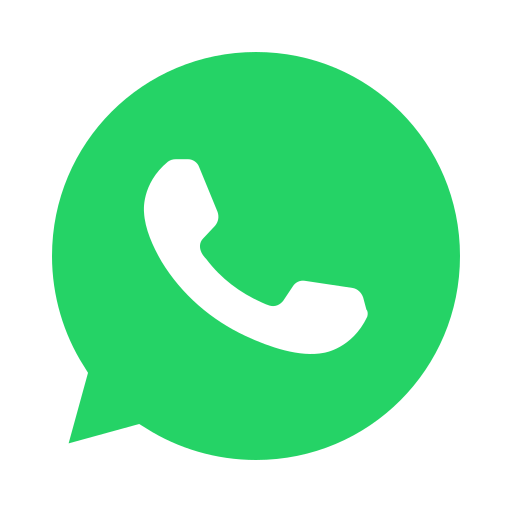Business trips can be both exciting and nerve-wracking—especially when you’re headed to a country with a vastly different language and culture. If you’re preparing for a work trip to China, a few key Mandarin phrases can go a long way in building trust, showing respect, and navigating your stay more smoothly.
Whether you’re walking into your first meeting, ordering dinner with clients, or trying to catch a cab—this guide has got you covered.
Greetings & Introductions
First impressions matter in Chinese business culture. A polite greeting, a slight nod, and the right words can set the tone for a successful interaction.
- 你好!(Nǐ hǎo) [नी हाओ] – Hello!
- 我叫 [Name]。(Wǒ jiào [Name]) [वो च्यीआओ…] – My name is [Name].
- 很高兴认识你!(Hěn gāo xìng rèn shí nǐ) [हन गाओ श्यींग रन शिर् नी] – Nice to meet you!
- 您贵姓?(Nín guì xìng?) [नीं कुई श्यींग?]– What’s your surname? (formal)
- 你有名片吗?(Nǐ yǒu míngpiàn ma?) [नी योउ मिंग पिएन मा?]– Do you have a business card?
- 请多多关照。(Qǐng duōduō guānzhào) [छ्यींग तुओ तुओ कान चाओ] – Please take care of me. (Polite phrase during introductions)
💡 Tip: Always present your business card with both hands and take a moment to read the one you receive—this shows respect.
Navigating meetings in Mandarin doesn’t have to be intimidating. Use these phrases to stay confident and courteous:
- 会议几点开始?(Huìyì jǐ diǎn kāishǐ?) [हुईयी च्यी तिएन खाय शिर्] – What time does the meeting start?
- 我们开始吧。(Wǒmen kāishǐ ba) [वोमन खायशिर् पा] – Let’s get started.
- 请问,你能说慢一点吗?(Qǐngwèn, nǐ néng shuō màn yīdiǎn ma?) [छ्यींगवन, नी नंग शुओ मान यी तिएन मा?] – Could you speak a bit more slowly?
- 这个是我们公司的介绍。(Zhège shì wǒmen gōngsī de jièshào) [च क शिर् वो मन कुंग स त च्यीए शाओ] – This is an introduction to our company.
- 我们很期待合作。(Wǒmen hěn qīdài hézuò) [वोमन हन छ्यि ताय] – We’re looking forward to working together.
- 我们可以安排一个会议吗?(Wǒmen kěyǐ ānpái yīgè huìyì ma?) [वोमन खयी आनप्हाय यी क हुईयी मा?] – Can we schedule a meeting?
Negotiation & Clarification
When it comes to deals and discussions, clarity is key. These phrases can help you navigate negotiation politely and professionally:
- 你的意思是……?(Nǐ de yìsi shì…?) [नी त यिसं शिर्…] – Do you mean…?
- 可以再解释一下吗?(Kěyǐ zài jiěshì yíxià ma?) [खयी त्चाय च्यीए शिर् यी श्यिआ मा?] – Could you explain again?
- 这个价格可以商量吗?(Zhège jiàgé kěyǐ shāngliáng ma?) – Is this price negotiable? [च क च्यीआ क खयी शांग लियांग मा?]
- 我们需要一点时间考虑。(Wǒmen xūyào yīdiǎn shíjiān kǎolǜ) [वोमन श्यू याओ यी तिएन शिर् च्यीएन खाओ ल्यू]– We need some time to consider.
- 起订量是多少呢?(Qǐ dìng liàng shì duōshao ne?) – [छ्यि तिंग लियांग शिर् तुओ शाओ न?] What is the MOQ?
- 请问你们的贸易条款是什么呢?(Qǐngwèn nǐmen de màoyì tiáokuǎn shì shénme ne?) [छ्यिंग वन नीमन त माओयी थियाओ खुआन शिर् शन म?]– What are your terms of trade?
- The answer will be in english, for e.g. FOB Shanghai.
- 请问你们的付款方式是什么呢?(Qǐngwèn nǐmen de fùkuǎn fāngshì shì shénme ne?) [छ्यिंग वन नीमन त फूखुआन फांगशिर् शिर् शन म?] – What is your payment method?
- 合同什么时候可以签?(Hétóng shénme shíhòu kěyǐ qiān?) [ह थोंग शन म शिर् हौ ख यी छ्यिएन?]– When can we sign the contract?
Meals are an important part of relationship-building in Chinese business culture. Here’s how to navigate the dinner table:
- 谢谢你的邀请!(Xièxiè nǐ de yāoqǐng!) [श्यिए श्यिए नी त याओ छ्यिंग] – Thank you for the invitation!
- 这个很好吃!(Zhège hěn hǎo chī!) [च क हन हाओ छ्यिर्] – This is delicious!
- 干杯!(Gān bēi!) [कान पेय] – Cheers!
- 我不喝酒,谢谢。(Wǒ bù hē jiǔ, xièxiè) [वो पू ह च्यीओ, श्यिए श्यिए] – I don’t drink alcohol, thank you.
- 我们可以点这个吗?(Wǒmen kěyǐ diǎn zhège ma?) [वो मन खयी तिएन च क मा?] – Can we order this?
- 我是素食者。(Wǒ shì sùshí zhě) [वो शिर् सूशिर् च]– I am a vegetarian.
- 我不吃肉也不吃鱼。(Wǒ bù chī ròu yě bù chī yú) [वो पू छ्यिर् रौ, ये पू छ्यिर् यू] – I don’t eat meat or fish.
- 我不吃猪肉和牛肉。(Wǒ bù chī zhūròu hé niúròu) [वो पू छ्यिर् चूरौ ह निऊ रौ] – I don’t eat pork or beef.
- 我可以吃鸡肉。(Wǒ kěyǐ chī jīròu) [वो खयी छ्यिर् च्यीरौ] – I can eat chicken.
🍵 Tip: It’s polite to wait for the host to start eating first. Also, try a little of everything offered—it’s a sign of appreciation.
Travel & Logistics
From taxis to payments, here are a few essentials to get around and stay organized:
- 请帮我叫出租车。(Qǐng bāng wǒ jiào chūzūchē) [छ्यिंग पांग वो च्यीआओ छू त्चू छ] – Please help me call a taxi.
- 我要去这个地址。(Wǒ yào qù zhège dìzhǐ) [ वो यो छ्यू च क तीच्यीर्] – I want to go to this address.
- 请问最近的地铁站在哪儿?(Qǐngwèn zuìjìn de dìtiě zhàn zài nǎ’er?) [छ्यिंग वन त्चूईच्यीन त तीतिये चान त्चाय नार्?]– Where is the nearest subway station?
- 我没有微信,可以用现金吗?(Wǒ méiyǒu Wēixìn, kěyǐ yòng xiànjīn ma?) [वो मेय यौ वेय श्यिन, खयी योंग श्यिएन च्यीन मा?] – I don’t have WeChat. Can I use cash?
- 我有微信,哪里可以扫码?(Wǒ yǒu Wēixìn, nǎlǐ kěyǐ sǎomǎ?) [वो यौ वेय श्यिन, नाली खयी साओमा?]– I have WeChat. Where can I scan?
- 我可以用信用卡吗?(Wǒ kěyǐ yòng xìnyòngkǎ ma?) [वो खयी योंग श्यीन योंग खा मा?] – Can I use a credit card?
Emergency & Etiquette
Even in unexpected situations, these polite expressions will come in handy:
- 我需要帮助。(Wǒ xūyào bāngzhù) [वो श्यू याओ पांग चू] – I need help.
- 我迷路了。(Wǒ mílù le) [वो मिलू ल] – I’m lost.
- 对不起。(Duìbuqǐ) [तुई पू छ्यी] – I’m sorry.
- 没关系。(Méi guānxi) [मे कुआन श्यी] – It’s okay / No problem.
- 谢谢你!(Xièxiè nǐ!) [श्यिए श्यिए नी] – Thank you!
Wrapping Up
Speaking just a little Mandarin shows tremendous respect and cultural sensitivity—both highly valued in Chinese business culture. Start small, practice often, and most importantly, speak with confidence.
If you’d like to take your Mandarin to the next level, The Oriental Dialogue offers beginner to advanced courses with real-life business use in mind. 💼✨
Interested in learning Mandarin for work?
👉 Contact us to join our upcoming business Mandarin workshop!






